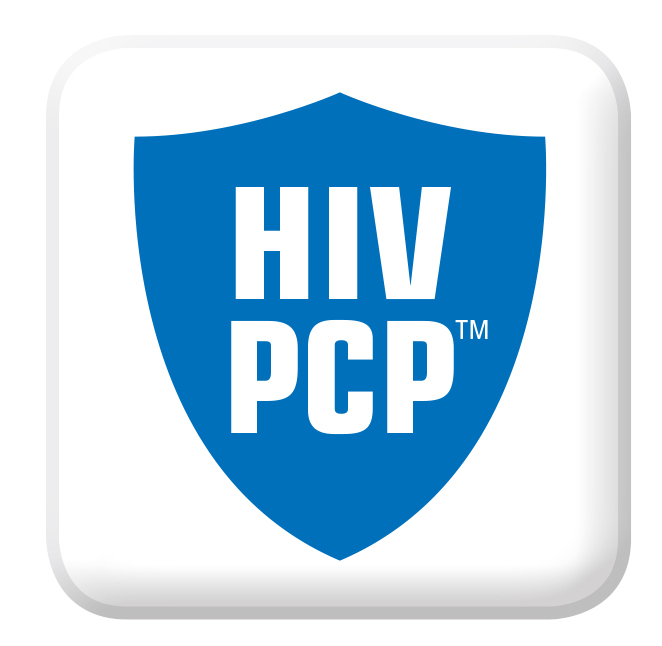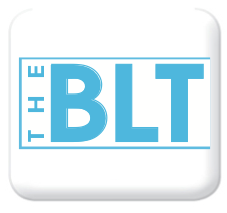- 1630 Connecticut Ave, NW, Suite 500, Washington D.C. 20009
- 202.232.6749
- 202.232.6750
- [email protected]
Menu

Regular appointment attendance is key to slowing the progression of HIV disease, reducing the transmission to others, and improving health outcomes. Barriers such as a shortage of HIV care providers, time, transportation and HIV-associated stigma, preclude ongoing engagement in care. Additionally, recent COVID-19 responses such as requests for social-distancing or self-quarantine prevent immunocompromised clients from attending routine in-person appointments.
Health organizations have been slow to transition to using telehealth services due to programmatic barriers, low confidence in virtual encounters, and perceived high costs and low reimbursement.
Telehealth is an important resource for increasing access to HIV care and prevention services by helping clients overcome these barriers. The process of developing and implementing a telehealth program is multifaceted and requires engagement from organizational leadership and frontline staff. However, the benefits of care accessibility to clients outweigh the costs of implementation.
HealthHIV has been working in the area of telehealth for several years, and the TeleHealthHIV program provides capacity building assistance (CBA) to health departments, community based organizations, AIDS service organizations, and health organizations to develop, implement, or expand HIV prevention and care telehealth services. CBA activities span the range of program development, implementation and expansion, and include:
Services are available on a fee-for-service basis or through existing contracts with federal agencies. Email [email protected] for more information.

HealthHIV's Telehealth Webinar Series features in-depth discussions with leading practitioners and experts in telehealth for HIV prevention and care. View each of the webinars below to learn about innovative telehealth models and strategies to overcome implementation challenges. Click the webinar titles to access the archive.
Expanding HIV Care Through Telehealth Learning Cohort
The 2021 cohort provides training opportunities and consultations to enhance organizations’ existing telehealth programs for HIV care and treatment through group-learning sessions with peer sites and telemedicine experts on optimizing telehealth technology, client access, and scale-up of services. Participating organizations joined an online discussion board to share challenges, lessons learned, and model practices with each other and to access individual consultation from subject matter experts.
TeleHealthHIV’s Summit on Telehealth Implementation & COVID-19
The virtual summit engaged with national experts and peers organizations on how to implement effective telehealth programs amidst the COVID-19 pandemic. Panelists discuss the state of telehealth today: highlighting what is happening in the field and sharing lessons learned from the COVID-19 pandemic. Guest speakers discussed key components of telehealth implementation: telehealth reimbursement; technology infrastructure for telehealth, client engagement in telePrEP, and strategies for provider readiness.
Click below to download slides from January 21, 2021
Click here to access all TeleHealthHIV Summit session recordings.
The health care delivery system has changed dramatically in the past few months due to the COVID-19 pandemic. The use of virtual HIV prevention and care delivery is increasingly becoming the standard of care. This webinar showcases Iowa’s TelePrEP program. Iowa TelePrEP utilizes PrEP screening, education, and referral in statewide public health clinics and partner services to increase access to PrEP for individuals who cannot currently see a provider in their local area. Speakers, including Cody Shafer, Prevention Services Coordinator, HIV Special Projects Division of NuCara Pharmacy, discussed innovative practices and lessons learned when implementing a telehealth program.
Download the Following Resources
Telehealth & COVID-19: Implications for HIV Care & Treatment
Recent expansions to federal telehealth coverage, policy and regulations are changing the landscape of virtual HIV care delivery. This webinar will showcase two telehealth programs for HIV care. The presenters will discuss the impact of recent policy changes and strategies for health organizations to quickly implement virtual care in the era of COVID-19.
HealthHIV's third presentation in the Telehealth Webinar Series features Oklahoma State University's (OSU) mobile HIV telemedicine program. This mobile clinic delivers one-on-one care, including HIV care, via live-video telemedicine in the state's rural areas. Dr. Madhuri Lad of OSU will describe the development of this program, including technology, software, staffing, and infrastructure. The presentation includes practical solutions to overcome the challenges of implementing and maintaining a mobile telemedicine program, such as cost, staff training, time, and client engagement.
HealthHIV's Telehealth Webinar Series continues with a close look at Georgia's Tele-network, recognized as one of the most comprehensive public health telemedicine networks in the nation. Each of Georgia's 159 counties is equipped with a telecommunication system that connects clients at their local health center to specialists, including for HIV care. The presenters of this webinar will describe the need for these innovative telehealth approaches to HIV care in Georgia, and illustrate how the state developed its telehealth infrastructure. Participants will gain practical strategies to develop partnerships that improve the reach of a telehealth program. The presentation will close with a discussion of reimbursement and the benefits associated with telehealth for patients, physicians, and payers.
Alabama eHealth Telehealth: Lessons Learned for Rural and Urban Care Delivery Access to HIV prevention and care remains a critical issue for clients living in both rural and urban areas. Telehealth is an underutilized tool that allows providers and clients to connect via presenting sites or direct-to-consumer models. This webinar will describe how Medical Advocacy and Outreach (MAO) in southern Alabama developed the telehealth infrastructure to address needs of clients across 28-counties in rural and low-resourced areas. The presentation will include how this model of delivery was developed, the program costs, and recommendations for adapting this model to an organization's needs.
HealthHIV's Telehealth Webinar Series continues this month with Demonstrating the Value of Telehealth: Frameworks for Payor-Provider Relationships in Telemedicine.
Telehealth creates immense value for clients and health systems through increased availability of specialty services, convenient access for clients, and enhanced patient monitoring for providers. Luis Argueso, Partner, and Kevin Cassell, Manager, of HealthCare Appraisers will discuss strategies to determine your telemedicine program's value to clients and health systems, and frameworks to demonstrate that value to payors.
Access the latest news and resources about national telehealth policy, research, and programs.
(Coming soon.) The purpose of the Telehealth Practitioner’s Guide for HIV Prevention and Care is to walk a health center, clinic, or program through the essential steps to start and implement a telehealth program and depict that telehealth does not have to be complicated or costly. Telehealth programs provide critical tools and resources to strengthen the Ending the HIV Epidemic: A Plan for America (EHE) initiative. Telehealth allows clients to receive care from multidisciplinary teams of specialists in convenient locations, making engagement in ongoing care more feasible. This guide describes the steps to develop a live two-way telehealth program.
The Project ECHO model connects primary care providers and specialists to increase patients’ access to specialty care. Providers participate in weekly grand rounds through videoconferencing to provide mentorship and transfer specialty knowledge to primary care providers.
The New Mexico AIDS Education and Training Center (NM AETC) TeleECHO program helps providers become familiar with HIV prevention and care in a primary care setting.
Weekly grand rounds include a didactic session and case review. Click
here for more information and to learn how to participate.
A national non-partisan resource for telehealth policy. CCHP provides resources such as: bill analysis, fact sheets, legislative and regulatory updates, research catalogues, policy briefs and newsletters.
CCHP provides updated information for general telehealth policy on a state-by-state basis.
The Centers for Medicare & Medicaid Services develops guidelines for federal and state telehealth reimbursement.
HealthHIV conducts national survey research to report on the needs of organizations serving people living with and at risk for HIV and their priority populations. Visit each of the surveys below to inform your organization’s programs:
Download presentations from SYNC related to telehealth program implementation and evaluation
Due to HIV primary care workforce shortages, we are providing a series of online eLearning courses to help promote workforce competencies in the areas of HIV prevention, care, leadership, board development, LGBT health, engaging and retaining MSM of color in services, and opioid health.

The HIV Prevention Certified Provider™ Certification Program provides medical education and professional development for clinicians to develop new skills and professional competencies to optimize the quality of care to people with HIV. By participating in this web-based certificate program, providers can apply “lessons learned” to their practice. Five eLearning modules, each offering continuing medical education/continuing education credits. A total of 5 free CME credits are available. All participants completing the program receive a certificate of completion, documenting their training in HIV primary care.

The HealthHIV HIV Primary Care Training and Certificate ProgramTM provides medical education and professional development for clinicians to develop new skills and professional competencies to optimize the quality of care to people with HIV. By participating in this web-based certificate program, providers can apply “lessons learned” to their practice. Five eLearning modules, each offering continuing medical education/continuing education credits. A total of 5 free CME credits are available. All participants completing the program receive a certificate of completion, documenting their training in HIV primary care.

The ASO/CBO Leadership Initiative addresses the significantly evolving capacity building needs of ASOs/CBOs resulting from implementation of health care reform, recent biomedical advances, national strategies, and federal/state funding re-alignments by strengthening organizational leadership. The Initiative provides ASO/CBO leaders and boards of directors with opportunities to develop skills to support their organizations in ‘remaining relevant’. Additionally, the ASO/CBO Leadership Initiative promotes the development of the next generation of ASO/CBO leaders and addresses succession planning activities.

As a result of fundamental shifts transforming the public health system ASO and CBO leadership each day are being presented with new challenges to the sustainability of their organizations. In order to be proactive and responsive to the changing HIV and healthcare landscapes, ASO/CBOs must:
Improve understanding of their own organization’s sustainability needs; Adapt new business practices and HIV service delivery models; Focus strategy to leverage existing funding and resources to adapt service delivery; and, Develop fiscal strategies to achieve increased revenue and income diversification. Board members are responsible for ensuring that its organization has the resources it needs to be successful and that the mission and philosophy of the organization are maintained. Thus, ASO/CBO Board of Directors must be prepared and engaged to pivot their organizations in the dynamic healthcare landscape.
Given their limited access to guidance and tools to engage with leadership in sustainability planning – and significant time resource limitations for ASO/CBO board member training – HealthHIV is offering a free, self-paced, online curriculum for board members called The BLT™
© Copyright 2025 HealthHIV. All rights reserved.